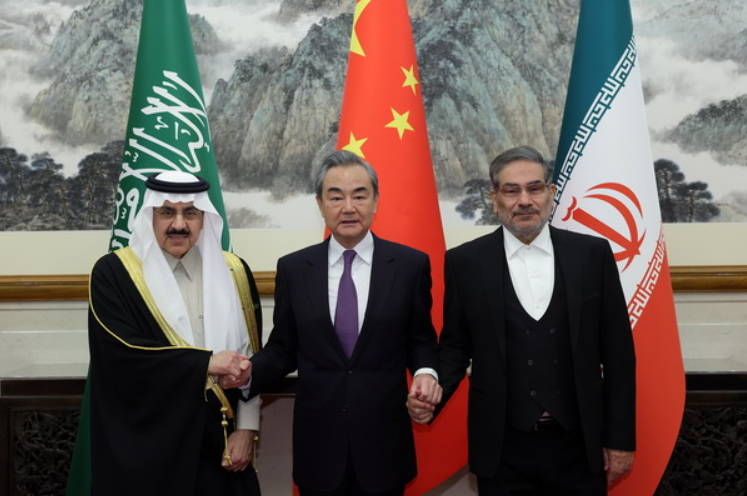He Wenping, Research Fellow, West Asia and Africa Studies Institute of the China Academy of Social Sciences
Mar 05, 2024
The latest Palestinian-Israeli conflict has lasted four and a half months since its outbreak in October and resulted in nearly 30,000 Palestinian deaths, the destruction of nearly all infrastructure in the Gaza Strip and more than 2 million people left homeless, as well as a severe shortage of food, drinking water and medicine. The humanitarian disaster is intensifying with each passing day.
Richard Javad Heydarian, Professorial Chairholder in Geopolitics, Polytechnic University of the Philippines
Feb 26, 2024
A New Cold War is not in the interest of either the U.S. or China, particularly given the volatility in the Middle East. In fact, the two nations share common interests in the region, and the threat of widespread conflict should inspire an element of strategic sobriety and tactical cooperation.
He Wenping, Research Fellow, West Asia and Africa Studies Institute of the China Academy of Social Sciences
Jan 02, 2024
The latest round of the Israel-Hamas conflict has dragged the Israeli-Palestinian issue back to center stage in the Middle East. While China played a positive role in getting Iran and Saudi Arabia to the negotiating table, the violence in Gaza could influence the election prospects of U.S. President Joe Biden and the Democratic Party.
Niu Xinchun, Director of Institute of Middle East Studies, China Institute of Contemporary International Relations
Jan 02, 2024
One should not answer the question through the lens of the China-U.S. rivalry. The two have many shared objectives, and from both a moral and national interest perspective, the conflict is a losing proposition — a disaster not only for the people of the Middle East but for all mankind.
Nathaniel Schochet, Analyst and CJPA Global Advisors
Earl Carr, Founder and Chief Executive Officer at CJPA Global Advisors
Nov 27, 2023
Given the latest conflict and humanitarian crisis in the middle east, and the risk of the conflict expanding to involve other state actors throughout the region, Nathaniel Schochet and Earl Carr explore the possible opportunities, persistent limitations and the core geostrategic objectives of China’s mediation role in the 2023 Israel-Hamas War and elsewhere.
Dan Steinbock, Founder, Difference Group
Oct 13, 2023
Despite massive aid, U.S. policies have failed to achieve peace in Israel, West Bank and Gaza, thus eroding U.S. credibility in the region. Why did U.S. policies fail? Could Chinese policies contribute to peace?
Jin Liangxiang, Senior Research Fellow, Shanghai Institute of Int'l Studies
Jun 21, 2023
Expectations should be kept within reasonable bounds. While China facilitated the diplomatic process between Iran and Saudi Arabia, the momentum fundamentally came from within the region. The successful mediation shows that China correctly understood the aspirations of the region.

Sebastian Contin Trillo-Figueroa, Geopolitics Analyst in EU-Asia Relations and AsiaGlobal Fellow, The University of Hong Kong
Apr 18, 2023
The Butterfly Effect has taken flight. China’s diplomatic accomplishment in reconciling Saudi Arabia and Iran could have far-reaching consequences, with Ukraine’s future caught in its wake. The unexpected nature of this historic move means that its ramifications are rapidly gaining momentum and could unleash a tidal wave of global proportions, particularly in Europe.
Doug Bandow, Senior Fellow, Cato Institute
Apr 04, 2023
China has maintained a minimal presence in the Middle East over the last few decades, but Beijing’s mediation between Iran and Saudi Arabia demonstrates that Beijing is staking out a new, positive role in the region.
Jin Liangxiang, Senior Research Fellow, Shanghai Institute of Int'l Studies
Mar 24, 2023
As U.S. influence recedes, China’s role in the region can be expected to grow. It will push for peace, rather than dominate decision-making. China respects the people and will encourage them to be their own masters.